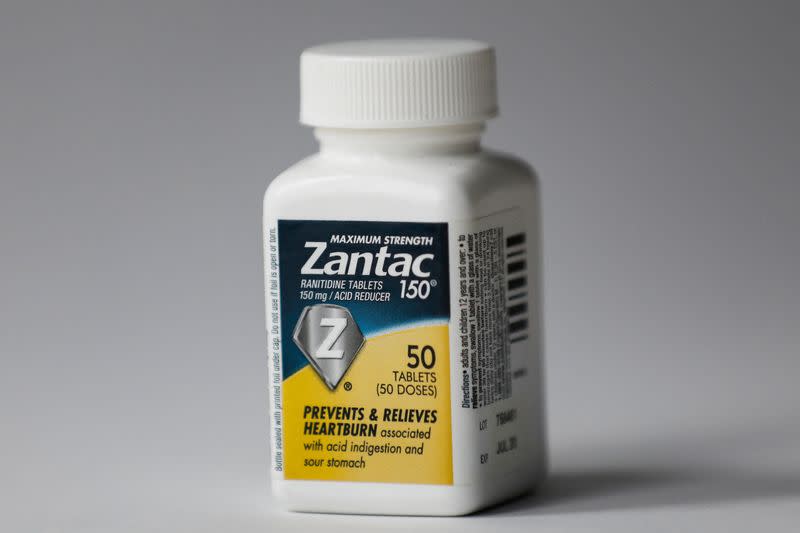Drugmakers' appeal to end Zantac cancer lawsuits rebuffed by judge

By Brendan Pierson
(Reuters) - A Delaware judge rebuffed a request by GSK and other drugmakers to appeal a ruling allowing more than 70,000 lawsuits claiming that the heartburn drug Zantac caused cancer to go forward.
The ruling by Judge Vivian Medinilla of the Delaware Superior Court means that the drugmakers, which also include Pfizer, Sanofi and Boehringer Ingelheim, will have to ask the Delaware Supreme Court directly for permission to appeal. GSK said it already submitted its appeal to that court.
If the state high court declines to take the appeal, it will clear the way for the Zantac lawsuits to go to trial.
"Judge Medinilla resoundingly rejected GSK, Boehringer Ingelheim, Pfizer, and Sanofi's attempt to end run around the jury system in Delaware," said Jennifer Moore, a lawyer for the plaintiffs.
GSK in a statement said "the scientific consensus remains that there is no consistent or reliable evidence that ranitidine increases the risk of any cancer." Ranitidine is the active ingredient in the now discontinued drug.
Lawsuits began piling up after the U.S. Food and Drug Administration in 2020 asked manufacturers to pull the drug off the market over concerns that ranitidine could degrade into a cancer-causing chemical called NDMA over time or when exposed to heat.
The drugmakers say Medinilla should have kept the plaintiffs from introducing expert testimony that Zantac can cause cancer, as a federal judge did in 2022 in about 50,000 claims centralized in Florida.
The plaintiffs' cases depend on that testimony, and cannot go to trial without it.
Industry groups including the U.S. Chamber of Commerce backed the drugmakers' appeal in a filing last month, saying letting Medinilla's ruling stand had relaxed the standards for evidence in the traditionally business-friendly state and threatened to turn it into "a hotbed of products-liability and mass-tort litigation."
Medinilla wrote on Monday that she had not adopted a different standard from the Florida federal judge, but simply reached a different conclusion about the evidence in the case.
First approved in 1983, Zantac became the world's best-selling medicine in 1988 and one of the first to top $1 billion in annual sales. It was originally marketed by a forerunner of GSK and later sold successively to other companies.
The vast majority of pending cases are in Delaware. Only one case, against GSK and Boehringer Ingelheim in Illinois, has gone to trial, ending in a victory for the companies last month.
(Reporting By Brendan Pierson in New York, Editing by Alexia Garamfalvi and Bill Berkrot)

 Yahoo Finance
Yahoo Finance 